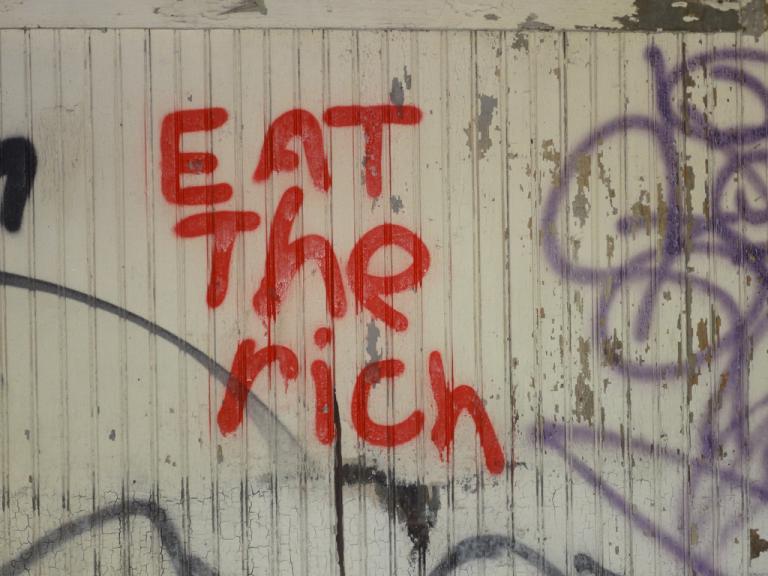
We are used to the taxation of income, the amount of money that we bring in every year. We are used to sales taxes, a levy on what we spend. There are also property taxes on our houses and other real estate; excise taxes on particular purchases such as cars, fuel, and tobacco; and a host of registration and user fees. Some progressive Democrats are proposing a new kind of tax: taking a percentage of a person’s total assets.
Presidential candidate Elizabeth Warren (D-Mass) is proposing an annual tax on the net worth of the very wealthy. If they have assets of more than $50 million, they would have to pay 2% of everything they have over that amount. That would rise to 3% of every dollar the person owns over $1 billion.
The purpose is not just to raise money for the signature programs of progressives (Medicare for All, free college, guaranteed income, etc.) but to reduce inequality.
From a story on Warren’s proposal at Bloomberg:
Wealth taxes do more to relieve inequality than raising income taxes, according to Steve Wamhoff, the director of federal tax policy at the left-leaning Institute on Taxation and Economic Policy. New York Democratic Representative Alexandria Ocasio-Cortez’s has proposed raising the top income tax rate to 70 percent, sparking conversations within the Democratic party about how high income levies should go.
New research also indicates that raising marginal income rates wouldn’t do much to lessen inequality, because much of the wealth among the richest Americans stems from private business profit taxed at lower rates and appreciated assets that go untaxed until they’re sold.
“If you believe that inequality is a problem, you have to start thinking outside the box,” Wamhoff said. “We need to go beyond the ideas that are already on the table today.”
This “thinking outside the box” is evidently manifesting itself in competition between Warren and Ocasio-Cortez on who can dream up the most radical proposal to “soak the rich” by making them less rich.
In progressive circles, that some people have more wealth than others is a moral offense. In a piece criticizing the approach, Kevin D. Williams quotes progressives to this effect:
. . .As Emmanuel Saez and Gabriel Zucman argue in the case of Representative Alexandria Ocasio-Cortez’s proposal to radically increase income taxes, this is to be understood not as an economic question but as a moral one: It is simply morally obligatory to hurt wealthy people. “The point of high top marginal income tax rates is to constrain the immoderate, and especially unmerited, accumulation of riches,” they write. . . .
Saez and Zucman write hopefully of the prospect that high tax rates would make the class of people with larger incomes “largely disappear.” Representative Ocasio-Cortez declares it “immoral” that we have a “system that allows billionaires to exist.” Marshall Steinbaum, the research director of the progressive Roosevelt Institute, wrote: “It’s increasingly clear that having wealthy people around is a luxury our society can no longer afford.”
Williams goes on to relate this policy of confiscating the property of the wealthy to the actions of radical socialists through the ages, including Stalin’s “liquidation of the Kulaks,” the affluent, property-owning peasants. After all, these were the “bourgeoisie” who owned private property, the middle class that was the target of the communist revolution. Stalin simply took everything they owned and then killed them, about 5 million people.
Surely taking 2-3% of what Ocasio-Cortez calls the “tippy-top” income echelon wouldn’t go that far? Would it? If it is just restricted to the “tippy-top,” does that make it acceptable, or is it intrinsically unjust at any income level? Do you think that kind of tax, if instituted, would eventually be applied to those with lower incomes?
Photo by Paul Sableman via Flickr, Creative Commons License












